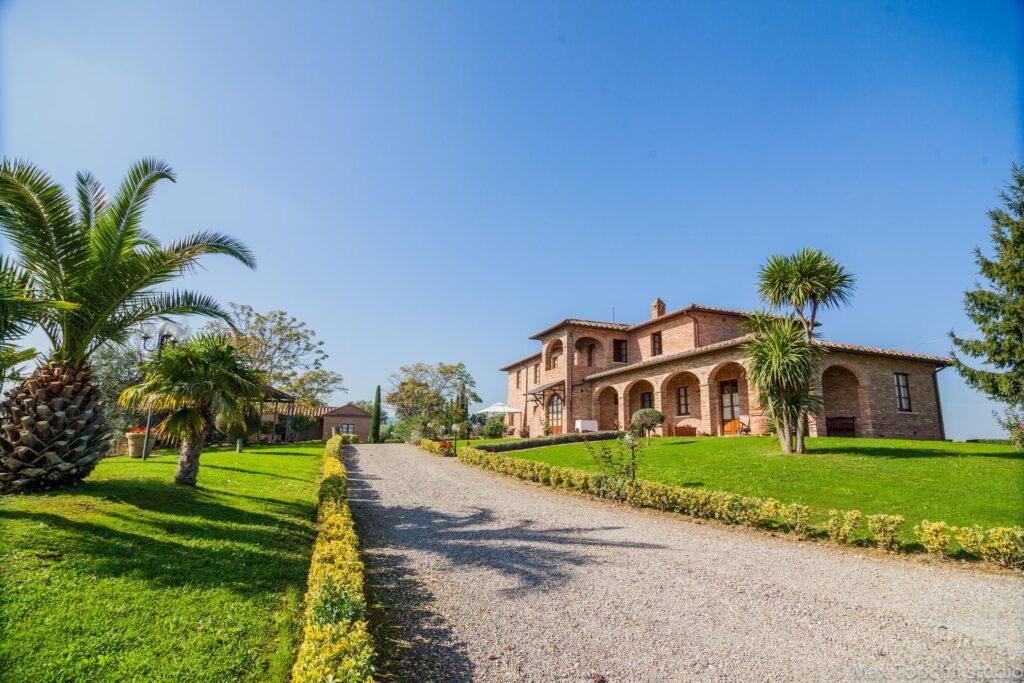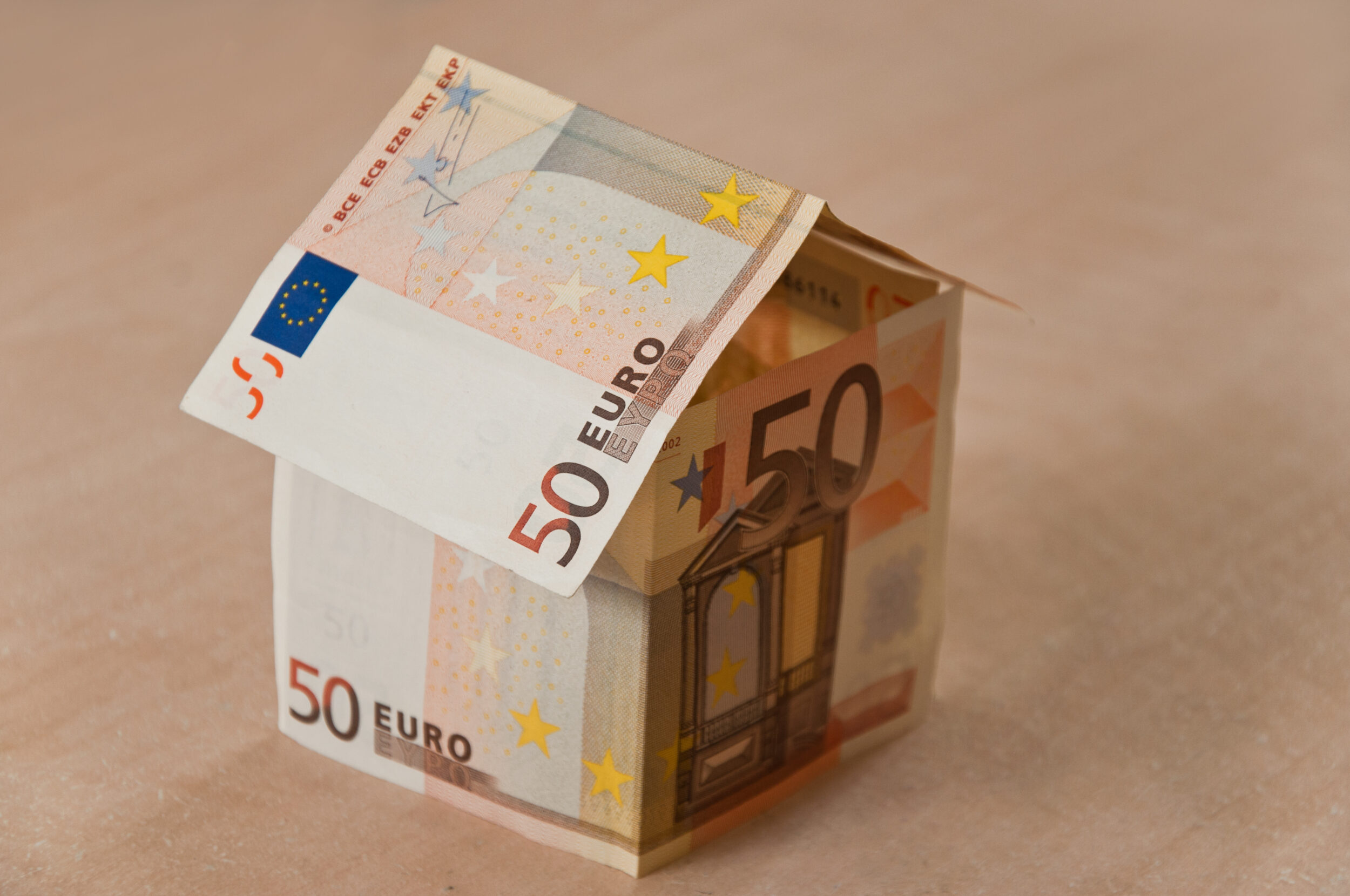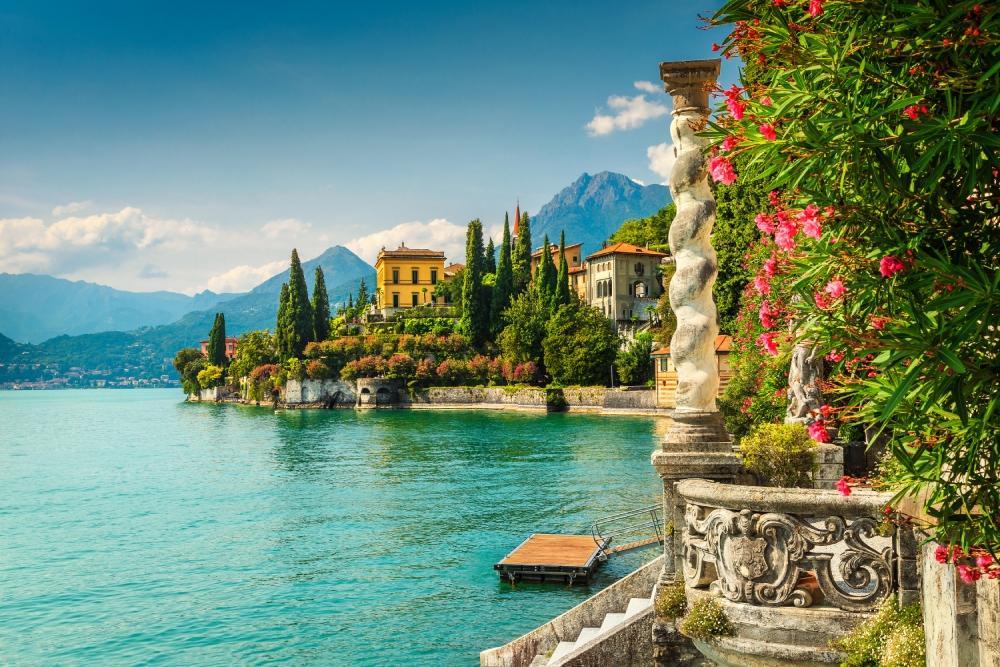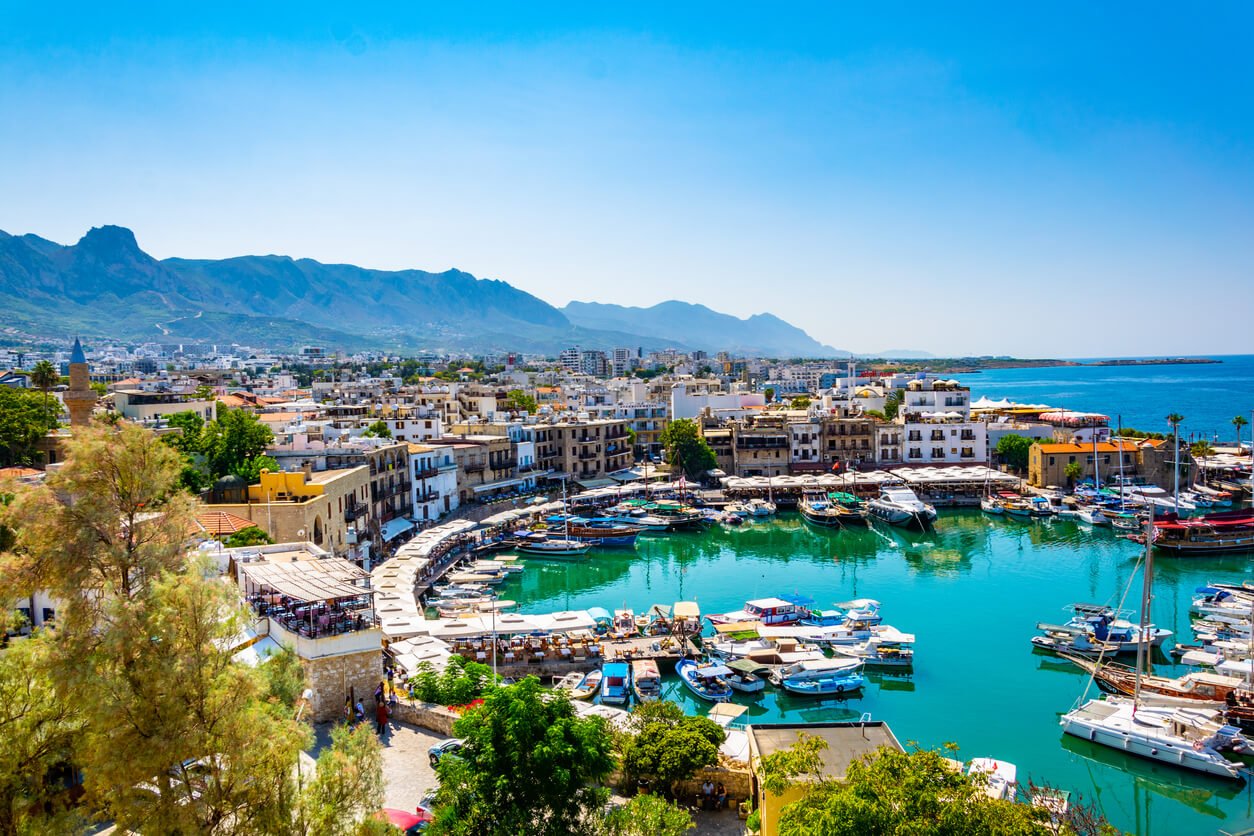
Purchasing a property in Italy as a foreign buyer involves certain steps and requirements. Let’s have a general overview of the process to become a property owner in Italy!
Step 1: Find the property of your dreams
To find your ideal property, it is important to clearly define your project. Here are some steps to help you identify your needs and find a property that meets your expectations:
Your budget
Determine your total budget for purchasing a property in Italy, including the purchase price, acquisition fees, legal costs, and potential renovation costs. This will help you refine your search and focus on properties within your financial reach.
Major Italian cities, seaside villas, or inland retreats?
Consider the location where you want to buy in Italy. Do you want to be in a major city like Rome, Milan, Venice, or Florence, or do you prefer a smaller town or a rural area? Also, take into account local infrastructure, amenities, transportation, etc. Determine the type of property you are looking for.

What type of property?
Do you want to buy a house, apartment, villa, or something more specific like a vineyard or a farmhouse? Also, consider factors such as size, the number of bedrooms, and specific features you may need (pool, garden, sea view, air conditioning, and parking).
Primary residence, secondary residence, or rental investment?
Consider the purpose you intend for your future property. Is it meant to be a primary residence, a secondary residence, or an investment property for rental purposes? This consideration can influence your choice of location and type of property.
Lifestyle and interests
Take into account your lifestyle and personal interests. If you enjoy outdoor activities, you might want to search for a property near the sea, mountains, or countryside. If you’re an art and culture enthusiast, you might prefer a city rich in history and museums.
Make a list of amenities and services that are important to you. This could include schools, shops, public transportation, parks, hospitals, etc. Ensure that the property you are looking for is close to these amenities.
Lastly, if you are a remote worker, Italy has plenty to offer!
Once you have defined your project, you can start contacting property agents, schedule property visits, and collaborate with local professionals such as a lawyer specialized in property law to guide you through the entire purchasing process in Italy.
It can be challenging to travel to visit properties in Italy, especially if you are abroad.
Our iad Overseas consultants* can provide you with an initial virtual tour to give you a first impression of the property.
Step 2: Verify the legality of the property before purchasing
Before proceeding with the purchase, it is essential to verify the legality of the property. You can request the seller to provide documents such as the property title, cadastral plan, and compliance certificate.
Additionally, consider conducting additional checks such as technical assessments, investigations into easement rights, or verifications of potential encumbrances on the property.
It is highly recommended to engage a lawyer specialized in property law in Italy. The lawyer can advise you throughout the process, review documents, negotiate purchase terms, and draft the contract.

Step 3: Obtain an Italian tax identification number
You will need to obtain an Italian tax identification number known as ‘Codice Fiscale.’ This can be obtained from the Italian tax office (Agenzia delle Entrate) by providing certain documents. It is advisable to complete this process as early as possible. If you are a resident in the United-Kingdom, you can approach the Italian consulate. If you are already in Italy, you must visit the local office of Agenzia delle Entrate in your municipality.
Step 4: Open a bank account in Italy and finance the purchase of your property
To buy property in Italy, you must have a bank account in the country, and all funds intended for the purchase must come from this account. You will likely need the following documents:
- Identification document
- Proof of address
- Codice Fiscale (tax identification number)
- Pay slips or other income documents (pension, rental income, etc.).
To finance your property purchase, you can obtain a loan from an Italian bank or one in your home country. You can also approach a local bank. Major ones include Banco Posta, Unicredit, Banca Nazionale del Lavoro, Barclays Italia, and Banca Intesa Sanpaolo. To reduce account maintenance fees, other alternatives like online banks are available.
Generally applied eligibility conditions:
- Minimum personal contribution of 20% of the property price.
- Loan approval time: between 20 and 60 days.
Note that this depends on your profile. Consult with an expert in the field for personalized guidance.
Thanks to its network of brokers, iad Overseas consultants* can assist you in financing your project
Step 5: Make a purchase proposal for your dream property
The ‘proposta irrevocabile d’acquisto‘ (irrevocable purchase offer) is a written statement from a potential buyer to a seller, indicating the buyer’s desire to purchase a specific property at a specific price. This written statement demonstrates the potential buyer’s interest in acquiring the property.
Once you have drafted your formal purchase proposal letter, specifying the price you are willing to pay for the property, along with the purchase conditions such as the closing date, payment terms, and any suspensive clauses, the seller must withdraw the property from the market for 15 days.
You will need to submit it to the seller or their property agent, ensuring it is clear, comprehensive, and professional. Negotiations may take place between you and the seller to reach an agreement satisfactory to both parties.
Once all details are agreed upon, you can proceed to the next step, which involves signing a final sales contract and making the necessary payments to complete the purchase of your property in Italy.
It is recommended to contact a local property agent for additional advice and information on the purchasing process in Italy. You can also seek assistance from a lawyer.
Step 6: Signing a preliminary sales agreement or "contratto preliminare di vendita"
Once you have found the desired property, you can sign a preliminary sales agreement (contratto preliminare di vendita).
This establishes the conditions of the purchase, including the price, timelines, and suspensive conditions.
Upon signing the agreement, a deposit (caparra confirmatoria), ranging from 10% to 30% of the property’s purchase price, is required.
Be aware that if you terminate the sale without a valid legal reason, the deposit will not be refunded. However, if the seller cancels the sale, they must reimburse you the entire deposit.
Step 7: Finalize the purchase with the deed of sale: just one step closer to the signature of your dream home
Once all conditions have been met, you can proceed with the signing of the deed of sale (atto di vendita) in the presence of an Italian notary. You will need to pay the agreed purchase price and the notary fees.
After the complete transfer of funds to the seller’s bank account, the final step in this process involves signing and validating the document to establish its legal validity. The notary will handle the necessary formalities that follow, including registration with the Italian tax administration, entry into public registers, updating the mortgage register, and updating the land register. This ensures that you are officially recognized as the new owner.
It is important to note that rules and procedures may vary depending on your nationality and the nature of the property. It is always advisable to consult with a specialized lawyer and become familiar with Italian property laws and regulations before undertaking such a purchase.
The legislation requires the document to be drafted in Italian. If you do not speak Italian, the deed can be translated into your native language by a sworn translator. However, for legal reasons, the Italian version will always prevail.

Notary, lawyers, buyers, and sellers: what is their role?
When purchasing a property in Italy, several parties play a key role. Here is an overview of the respective roles of the notary, lawyer, buyer, and seller:
The notary
- The notary is an independent and impartial legal professional who plays a crucial role in the process of property purchase in Italy.
Their primary role is to ensure the legal validity of the transaction and to ensure that all parties adhere to the applicable laws and regulations. - The notary is responsible for drafting the deed of sale (atto di vendita), which formalizes the property transaction.
They verify the legality of the documents, the identity of the parties involved, and ensure that all formalities are met before proceeding with the signing of the deed of sale. - The notary is also responsible for registering the property with the land registry office (Conservatoria dei Registri Immobiliari).
You can choose a notary who is not Italian.
The lawyer
- The lawyer is a legal professional who represents the interests of the buyer or seller during the property purchase process.
Their role is to advise and assist their client throughout the process, checking the legality of the property, reviewing contracts, negotiating terms and conditions, and ensuring the protection of their client’s rights. - The lawyer may also help in resolving any potential disputes and understanding the tax implications of the transaction.
The buyer
- The buyer is the individual (or entity) looking to acquire the property in Italy.
Their role is to define their needs and criteria for property search, conduct property visits, negotiate purchase terms, and ensure they have the necessary funds to conclude the transaction. - The buyer must also provide the required documents (ID, proof of address, and tax code), cooperate with the notary and lawyer to facilitate the purchase process.
The seller
- The seller is the individual or entity wishing to sell the property in Italy.
Their role is to provide the necessary documents to verify the legality of the property, negotiate the terms of the sale with the buyer, and cooperate with the notary and lawyer to facilitate the selling process. - The seller must also ensure that they are legally able to transfer the property to the buyer and provide necessary information about the property.
It is important to note that roles and responsibilities may vary depending on the specific circumstances of each property transaction in Italy. Working with competent professionals, such as a notary and a lawyer specialized in property law, is essential to ensure a smooth and secure buying process.

What are the pitfalls to avoid when buying a property in Italy?
When purchasing a property in Italy, it is important to steer clear of potential pitfalls. Here are the key elements to consider:
Verification of property legality
Make sure to carefully check the legality of the property. Verify the property title, cadastral plan, and other documents to ensure there are no legal issues or pending disputes.
Land use and building permits
Ensure that the property has all the necessary building permits and complies with urban planning regulations. Make sure that the land use aligns with your needs (residential, commercial, etc.) and that you can make the desired modifications.
Assessment of the property's condition
Have the property inspected by a building expert before finalizing the purchase. This will help identify any potential structural issues, hidden defects, or major renovation needs that could impact the property’s value.
Understanding additional costs
Inquire about all additional costs associated with purchasing a property in Italy, such as taxes (registration tax, mortgage taxes, and cadastral tax), notary fees, lawyer fees, land registration fees, condominium charges, etc. Calculate these costs into your overall budget.
Financial situation of the seller
Make sure to check the financial situation of the seller, especially if it is a forced sale or a seized property. You do not want to find yourself in a situation where the seller cannot legally transfer the property.
Detailed purchase contract
Ensure that all terms and conditions of the purchase are clearly stated in the contract, including the price, timelines, suspensive conditions, and penalties for non-compliance with the conditions.
Financing procedures
If you need financing for your purchase, make sure to understand the specific procedures and requirements for property loans in Italy. Obtain quotes from multiple financial institutions to find the best option for you.
It is essential to exercise due diligence, work with qualified professionals, and take the time to understand all aspects of the purchase before proceeding with a property transaction in Italy.
Work with a specialized lawyer
Hire a lawyer specialized in property law in Italy. They can guide you through the purchase process, review documents, ensure the validity of the transaction, and protect you against potential fraud or disputes.
The "1 Euro House" program
The initiative allows the acquisition of a house in several villages at the symbolic price of 1 euro. Its purpose is to revitalize certain rural areas while combating depopulation.
To become a property owner, you must meet the following conditions:
- Renovate the property within a period of 3 years.
- Carry out works amounting to a minimum of 15,000 €.
- Submit a deposit of 5,000 €, refunded once the renovations are completed.
In other words, the actual cost of the project is not just 1 euro. If you are interested in the program, be sure to take into account other expenses that you will need to finance.
Your independent property consultant* from iad Overseas will provide all the guidance to ensure the success of your project.
Being assisted by an iad Overseas property consultant*
An iad Overseas consultant*, specialized in the Italian property market, can assist you with your property project. They can help you find the ideal property, organize virtual or in-person visits, connect you with financial partners, and support you with administrative and tax-related matters. Feel free to share your Dolce Vita project with us!
Find your dream home with iad Overseas.






